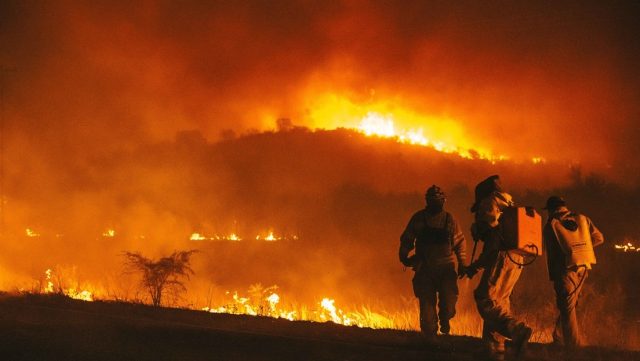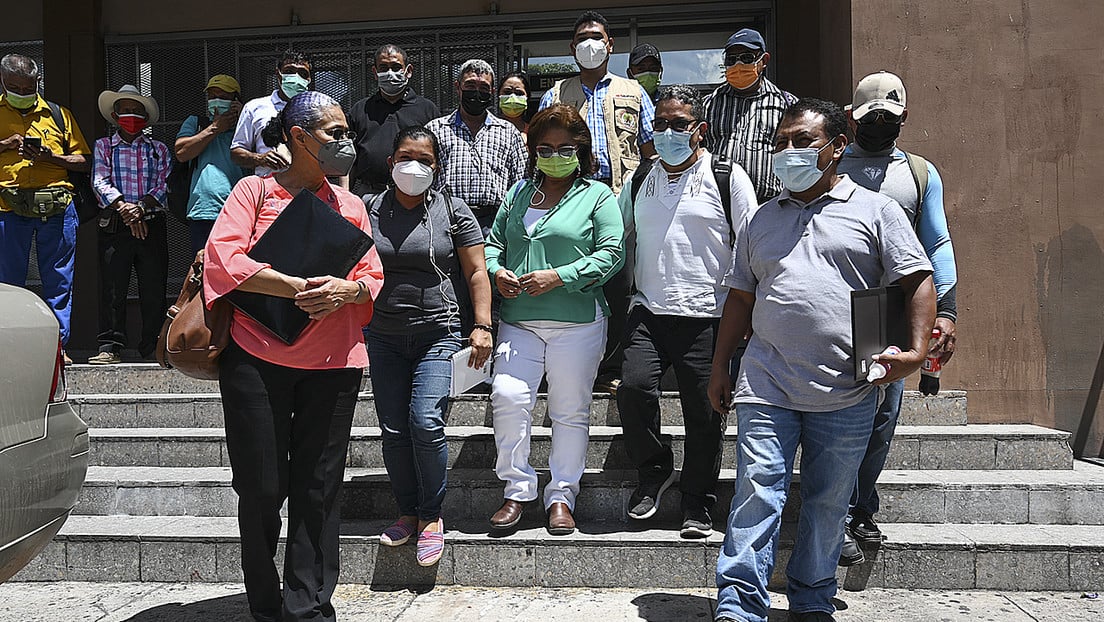The speeches and the enthusiasm expressed by some Argentine legislators were not enough. Nor were the innovative social demonstrations enough, which included caravans of kayaks on rivers, to protests in front of Congress, with artistic expressions of all kinds. Definitely, the issue was installed in the public and media agenda in Argentina.
However, once again, the Legislative Branch did not deal with the Wetlands Law, and these unprotected ecosystems continue to be damaged.
Indeed, it is the third time in a row that a project to take care of these natural spaces loses its parliamentary status, as it is not dealt with in extraordinary sessions. This inaction occurs while the northern province of Corrientes registers important fires: in January alone, 335,000 hectares were lost —17 times the City of Buenos Aires—, of which 58% corresponds to wetlands, “such as estuaries, marshes, weeds and vegetation of alluvial valleys”, warned the National Institute of Agricultural Technology (INTA).
Faced with the outrage caused by environmentalists, the Minister of the Environment, Juan Cabandié, stated that a new project will be worked on «with a federal perspective and in dialogue with NGOs and the productive, scientific and academic sectors». However, the initiative that was not voted on by the Legislature had been in the making for at least ten years, and on this last occasion it had obtained consensus that brought together a dozen different proposals. For this reason, from the Multisectoral Wetlands they exclaim that the sanction of the law «should not start from scratch or be delayed further».
One fifth of Argentina ‘s territory is at risk
The Ministry’s announcement was made on February 2, World Wetlands Day. On that same date, the United Nations pointed out that these natural spaces, based on the accumulation of water, are «the great forgotten in the climate change crisis».
The UN Environment Office warns: “Despite only covering about 6% of the earth’s surface, 40% of all plant and animal species live or breed on them. In turn, they are one of the most threatened habitats on Earth. Around 85% of the wetlands present in 1700 had been lost in the year 2000″. Much of that deterioration has occurred since 1970, with 35% destruction, says the Global Wetlands Outlook.
In Argentina, the importance of these ecosystems is superlative. According to the National Inventory of Wetlands, it is estimated that there are some 600,000 square kilometers covered by this type of ecosystem, representing 21.5% of the national territory. «They contribute decisively to human well-being», they say in the Ministry of the Environment. «For example, they (wetlands) are sources of water, mitigate droughts and floods, supply food, harbor rich biodiversity and store carbon». So, why does the State not take care of them? «There is no political will», said Julieta Bernabé, a member of the Multisectorial, to this medium.
The need to prioritize “care over profit”
Argentina is part of the Ramsar Convention (Iran) on wetlands, ratified by Congress in 1991. After the constitutional reform of 1994, all international treaties signed by the South American country have the same hierarchy as the Constitution itself. However, environmentalists warn that this is not enough.
«It gives a great general framework, but what is required for the protection, care and preservation of wetlands is a more precise regulation, which must be defined by a national law», explains Blanca Osuna, deputy of the Frente de Todos. «That has to do with the survey, the classification of wetlands and the regulation between preservation and the productive format», adds the pro-government legislator.
Argentina is a soybean and livestock country par excellence, causing enormous tension between environmentalists and businessmen over the use and disposal of land. One of the classic practices to improve land performance is the burning of grasslands, an action that can cause devastating fires if carried out without proper control. Faced with the advance of the so-called agricultural-livestock borders, Osuna believes that a law should control them, although that legislation «should not be anti-productivist». Likewise, an ideal regulation would have to prioritize “the care of the wetland over the gain in production”.
The interviewee was mayor of Paraná, capital of the province of Entre Ríos, between 2011 and 2015. She knows first-hand the scourge of environmental vulnerability: «Going through the delta and seeing the fires generates pain, anger and indignation», she says with regret. «Politics must use all the instruments at its disposal to help ensure that life and preservation are linked to actions where the State regulates, intervenes and cares», she adds. In addition to fire and its impacts on the air and people’s health, Osuna stresses that «water is a fundamental factor for well-being, especially for those who have the least». And she emphasizes: «It is not a matter that is indifferent to us».
At a bureaucratic level, the congresswoman details that the change depends on «a strong commitment from the provinces», since the Constitution stipulates that these natural assets are the property of the different jurisdictions. For this reason, regulations are required that promote an agreement between the national State and the various territories to develop joint policies, beyond the determination of each province. For Osuna, it is the best way to resolve «conflicting positions» in the eternal discussion about the economy and the environment.
Thus, although there have been changes with the Fire Management Law —it prohibits the sale of burned land for at least 30 years, to avoid speculation— and the Comprehensive Environmental Education Law, the legislator points out that “the Chamber of Deputies has an outstanding debt in relation to the Wetlands Law». In this regard, she anticipates that the Environment portfolio and various congressmen are already working together to promote a new proposal. And she promises: «I have great expectations that in this legislative year we can do it».




